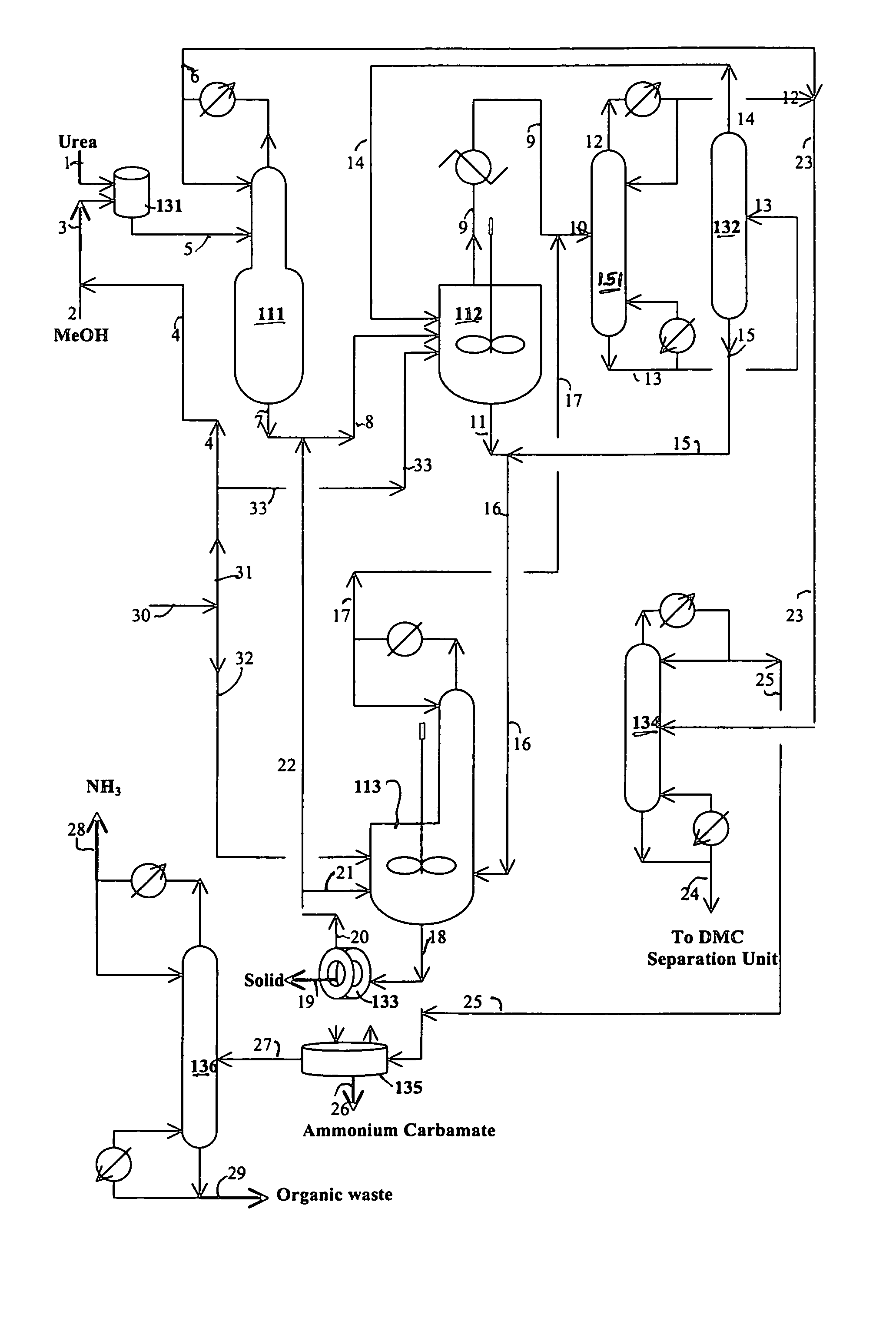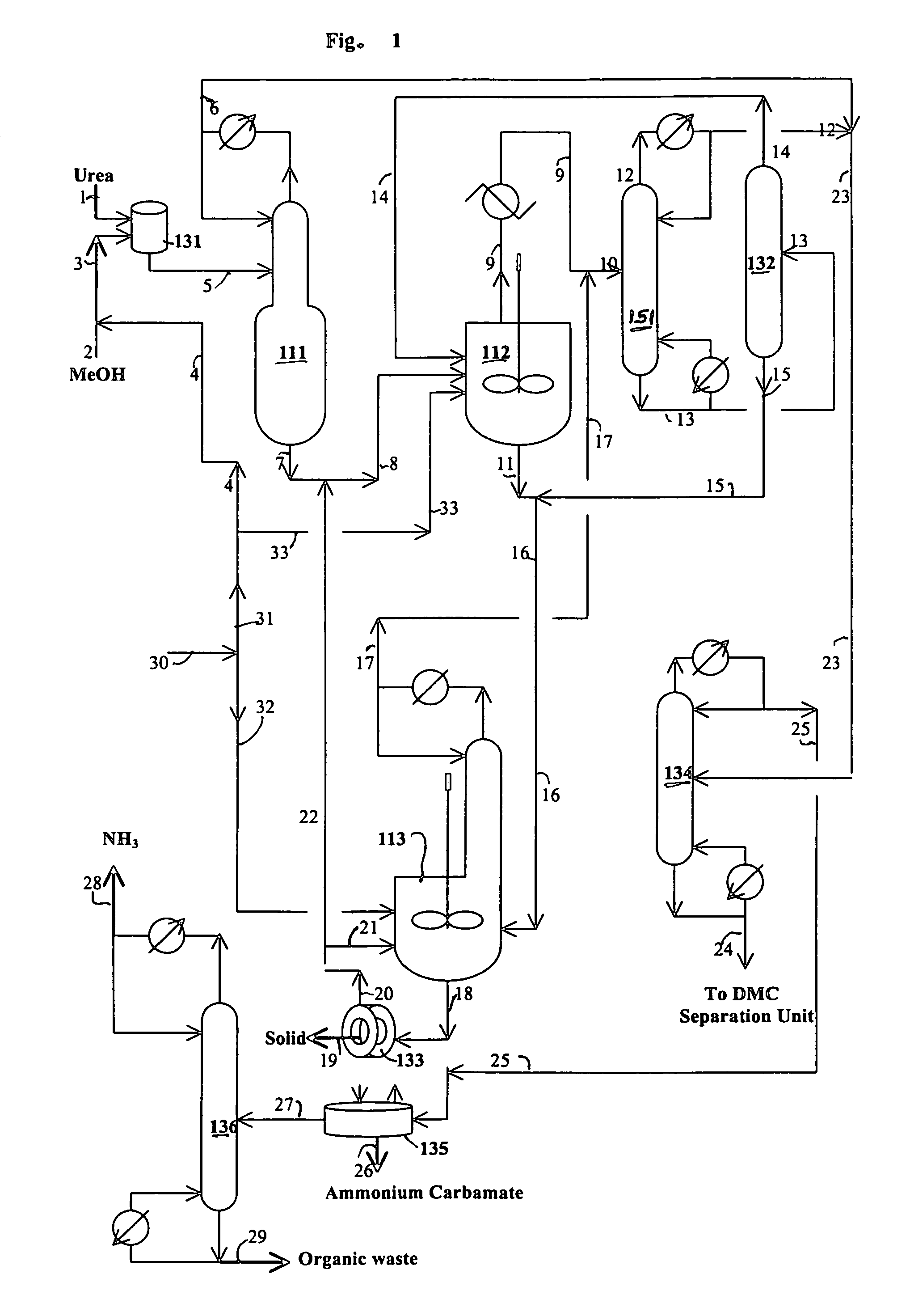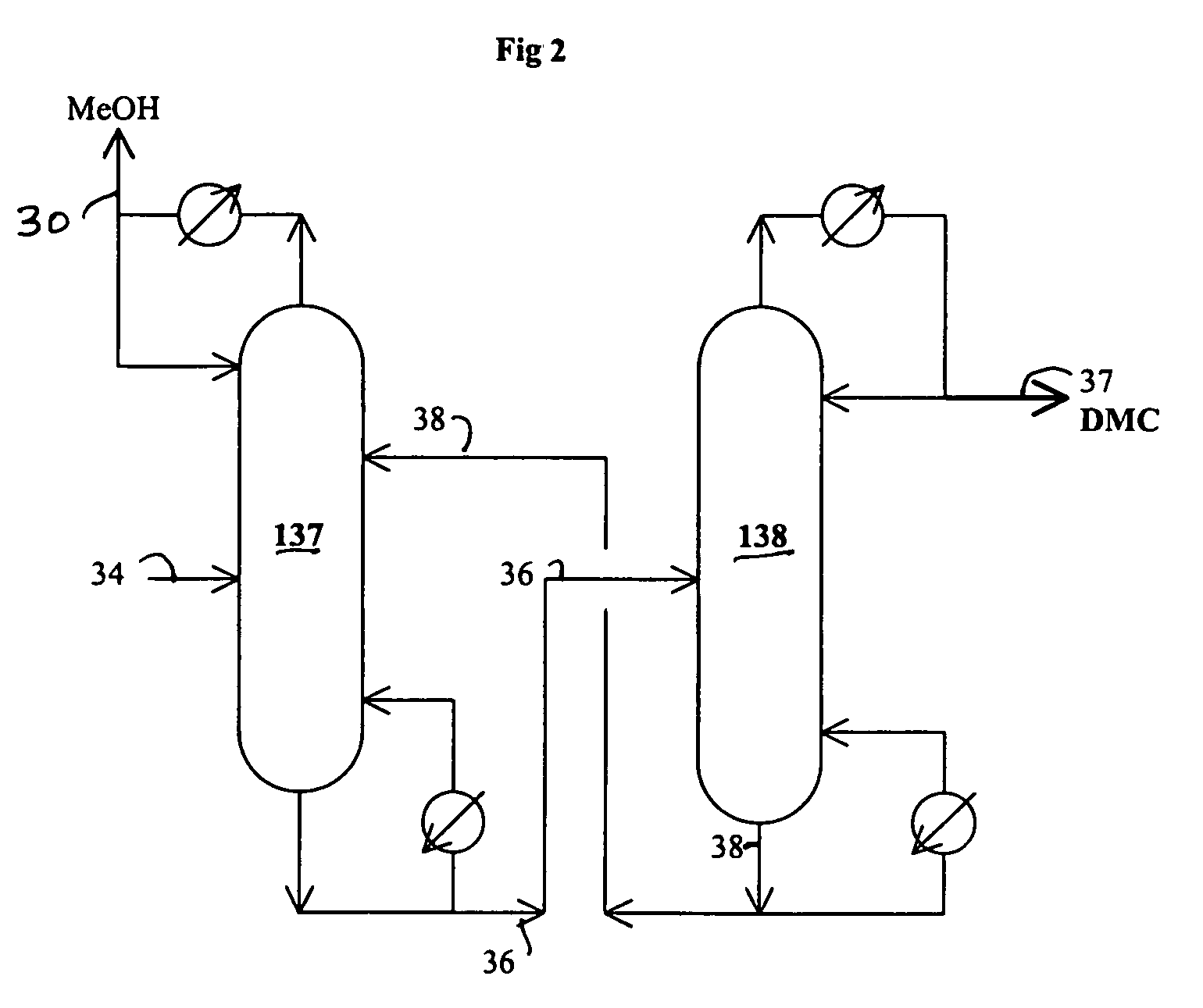Process for making dialkyl carbonates
a dialkyl carbonate and process technology, applied in the preparation of carbonic/haloformic acid esters, chemical apparatus and processes, organic chemistry, etc., can solve the problems of high cost of dimethyl carbonate and diethyl carbonate as fuel, high cost of product and reactant separation, and formation of by-products. , to achieve the effect of reducing the cost of dialkyl carbonate separation and faster reaction ra
- Summary
- Abstract
- Description
- Claims
- Application Information
AI Technical Summary
Benefits of technology
Problems solved by technology
Method used
Image
Examples
example 1
[0087]The reaction of water with urea is carried out in this example. The following materials are charged in a 500 ml three neck flask equipped with a magnetic stirrer and water cooled reflux condenser: 229.67 grams triethylene glycol dimethyl ether (triglyme), 1.58 grams of water, 2.06 grams of methanol and 15.89 grams of urea. When the reaction temperature of the mixture in the flask reaches about 100° C., 3.2 grams of additional methanol are added. The reaction of water with urea is carried out at a temperature from 128 to 140° C. for 0.92 hours under nitrogen blanket. The analysis of the sample taken from the flask are carried out by GC and HPLC. The analytical results indicate 22.4% conversion of urea and 45.2% conversion of water.
example 2
General Description of the Experiment
[0088]A one liter stirred autoclave serves as the reaction zone and reboiler for the reaction / distillation column reactor, which is connected to a 1 inch diameter×3.5 feet long distillation column. The distillation column has three zone heaters, which are independently controlled. The overhead vapor stream from the distillation column is diluted with a nitrogen stream (800 cc / min) and then partially cooled to about 200° F. with hot water in a condenser. The vapor stream from the condenser cooled to ambient temperature to prevent the plugging problem of a cold spot and overhead backpressure regulator. The liquid stream from the condenser flows to a small overhead liquid reflux drum. The temperature of the liquid reflux drum is maintained at ambient temperature. The flow of the liquid product from the overhead reflux drum is monitored with a LFM (liquid flow meter). The liquid stream from the overhead reflux drum and the cooled vapor stream are com...
example 3
[0093]A one liter stirred reactor (autoclave) with a distillation column was used to remove impurities in an 8.03 wt. % urea solution in methanol and convert urea to methyl carbamate. No catalyst was charged to the reactor. The experiment was carried out at 315° F. under 200 psig and 328° F. under 230 psig by pumping in the urea solution into the reactor at 4 ml / min with the constant bottom flow rate at 2 ml / min for 27 hours and 3 ml / min with the constant bottom flow rate at 1.5 ml / min to the end (146 hours on stream time) of the run. The distillation column is operated with overhead reflux. During the operation, the overhead flow was adjusted to maintain a constant liquid level (50% full) in the autoclave. The column operation was done with overhead reflux from the overhead reflux drum. The MC concentration in the bottom stream from the autoclave was about 20% on average, which corresponds to about 97% conversion of urea to MC. The urea feed contained about 2000 ppm water. The bott...
PUM
| Property | Measurement | Unit |
|---|---|---|
| melting point | aaaaa | aaaaa |
| temperature | aaaaa | aaaaa |
| temperature | aaaaa | aaaaa |
Abstract
Description
Claims
Application Information
 Login to View More
Login to View More - R&D
- Intellectual Property
- Life Sciences
- Materials
- Tech Scout
- Unparalleled Data Quality
- Higher Quality Content
- 60% Fewer Hallucinations
Browse by: Latest US Patents, China's latest patents, Technical Efficacy Thesaurus, Application Domain, Technology Topic, Popular Technical Reports.
© 2025 PatSnap. All rights reserved.Legal|Privacy policy|Modern Slavery Act Transparency Statement|Sitemap|About US| Contact US: help@patsnap.com



